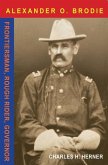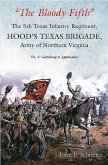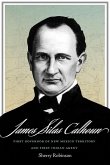After the Civil War, the United States Army faced a tremendous challenge on the Texas frontier. Military authorities had to overcome major obstacles in mobility and communications, and they had to learn a far different kind of warfare to defeat the Kiowa, Apache, and Comanche Indians. Large military posts have been examined in detail in numerous books written about the Texas frontier, but the importance of smaller outposts and picket stations has been generally overlooked. In Standing in the Gap, Loyd M. Uglow examines these smaller outposts in relation to the larger forts that controlled them and explores their significance in military strategy and the pacification of the frontier. The army's role in the settlement of West Texas has been, until now, explained through biographies of prominent officers and histories of both Indian campaigns and the larger forts. With only passing mention of outposts such as Grierson's Spring, Van Horn's Wells, and Pecos Station in these texts, the stories of picket posts have gone, for the most part, untold. Relying on sources such as archival records of the commanding forts, newspapers, and letters and journals, Uglow describes the reasons for establishing and deactivating approximately seventy outposts, as well as detailing their functions, contributions, accomplishments, inhabitants, and overall importance in populating the frontier.
Hinweis: Dieser Artikel kann nur an eine deutsche Lieferadresse ausgeliefert werden.
Hinweis: Dieser Artikel kann nur an eine deutsche Lieferadresse ausgeliefert werden.








